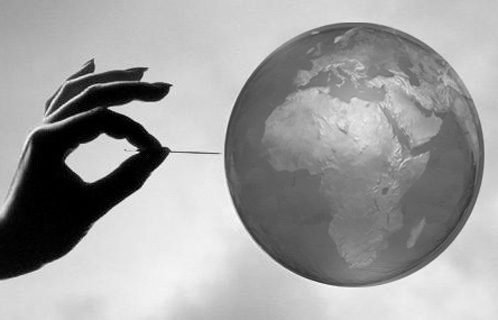Rebuilding Business Confidence the Next Battleground
 If there is one business lesson to be learned from the momentous events in the Middle East and North Africa these past few months, it is the fragility of reputation.
If there is one business lesson to be learned from the momentous events in the Middle East and North Africa these past few months, it is the fragility of reputation.
People power succeeded where diplomacy and political dialogue spectacularly failed, dealing a massive body blow overnight to the carefully-nurtured business reputations of Tunisia, Egypt and the Kingdom of Bahrain.
In a business context, the net effect – to date – of this push for democracy is the loss of a Grand Prix worth tens of millions of US dollars in revenue, punitive trade and aid sanctions, and the displacement of migrant workers on whom much of those countries’ infrastructure depends.
As worryingly, the unrest in MENA has dragged the rest of the region into the spotlight, further fuelling prejudice about security generally in this part of the world. How will countries like Morocco, Qatar, Syria and the United Arab Emirates, which have quietly gone about their business and largely escaped the unrest, tackle the likely knock-on effect of reduced investor and tourism confidence in the wider region?
For MENA’s inward investment and tourism agencies, the turmoil cannot have come at a worse time. Clever local marketing campaigns, underpinned by economic reform programmes aimed at attracting foreign direct investment, were starting to pay dividends. Growing business confidence, notably among EU and GCC investors, manifested itself in major joint ventures in, for example, the renewable energy and power generation sectors in Algeria and Libya.
And, after three years of recession in the West, tourists were just starting to travel again, to spend money on holidays in the resorts of Hammamet and Sharm El Sheikh and taking advantage of Egypt’s relaxed property ownership laws to bring more foreign currency into the country.
But with Brand Tunisia, Egypt and Bahrain now seriously tarnished and in a highly visible way – depending on your point of view, this is a hidden advantage, or disadvantage, of the power of social media networks – a further immediate consequence of the unrest is the impact on the tourism and inward investment brands of those countries.
Rather like a lava flow, reputational damage sweeps up and absorbs everything in its unstoppable path. And therein lies the real PR challenge: how to restore business reputation and confidence in a measured, credible way after a once-in-a-lifetime crisis that has attracted global attention.
The recovery will start modestly and quietly, through the Chambers of Commerce, joint business groups and foreign commercial alliances that are a feature of this part of the world. Exhibitions and conferences will also seek to provide the reassurance that recovery is under way.
But there will be no quick fix, simply because restoring a reputation does not and cannot happen overnight.
Organisations such as Invest in Tunisia will metaphorically have to dust themselves down and start from scratch to rebuild bridges with GCC and European investors. It will require time and patience, against a backdrop of continuing media scrutiny which will keep the political issues in these countries in the international eye for months ahead.
The secret will be to back the carefully-crafted ‘we’re open for business again’ messages with concrete policies that sound plausible and substantive and do not create the impression that this is simply a rush back to market before they – and investors – are ready.
Similarly, spending millions of dollars on advertising to convince tourists to return to the Mediterranean and Red Sea resorts to escape the snow and cold of northern Europe this Christmas, simply won’t wash. Restoring reputation goes beyond simple words, as BP found to its cost with its ‘Beyond Petroleum’ campaign, and consumers are increasingly discerning.
But brands and reputations can and do recover, given time, but the rehabilitation has to start now. There is a narrow window of opportunity, possibly just a few months, during which the new regimes can capitalise on the goodwill among Arab and Western nations anxious to see and support change for the better.
In Egypt’s case, there is no other choice. In 2009, an UNCTAD report ranked the country as the second highest recipient of FDI among African nations, with US$7 billion.
That is a position one of the poorest and heavily populated countries in the region cannot afford to give up lightly.



2 Responses to Rebuilding Business Confidence the Next Battleground
You must be logged in to post a comment Login